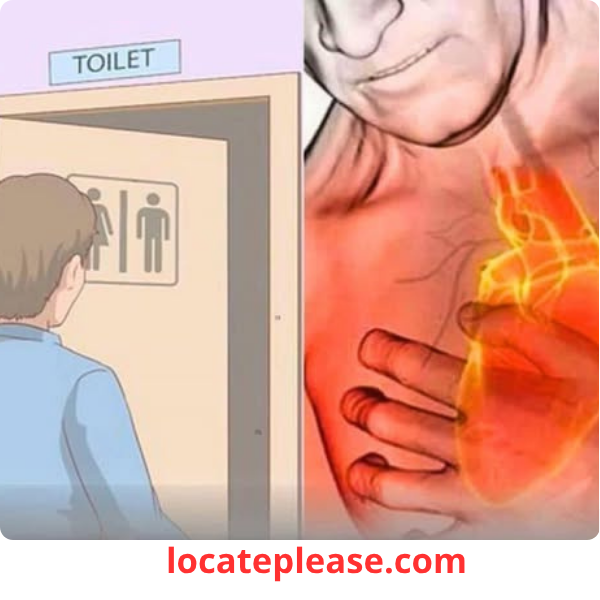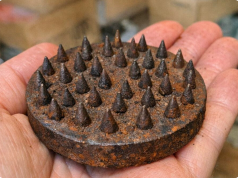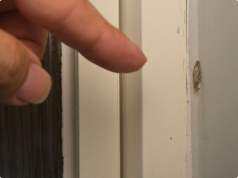Waking up once in the middle of the night to use the bathroom is common — especially as we age. But if you’re making multiple trips to the bathroom every night, it might be more than just a full bladder.
It could be a warning sign from your heart.
Known as nocturia, the need to urinate two or more times per night affects millions — and while it’s often blamed on aging, prostate issues, or drinking too much fluid before bed, emerging research suggests a deeper connection: heart health.
Yes — your late-night bathroom runs could be linked to heart failure and high blood pressure, and scientists are paying close attention.
What Is Nocturia?
Nocturia is defined as waking up one or more times during the night specifically to urinate. While occasional nocturia is normal, frequent episodes — especially if they disrupt sleep — may point to an underlying health issue.
Common causes include:
- Diabetes (high blood sugar increases urine production)
- Enlarged prostate (in men)
- Urinary tract infections
- Sleep disorders like sleep apnea
- Medications (diuretics, blood pressure drugs)
But now, heart-related conditions are being added to the list.
The Heart Connection: How Nocturia May Signal Heart Problems
When the heart isn’t pumping efficiently — a condition known as heart failure (or congestive heart failure) — blood can back up in the body, particularly in the legs and abdomen, during the day.
When you lie down to sleep, gravity shifts. Fluid that was pooled in your lower body begins to re-enter circulation, and the kidneys work harder to filter it out — resulting in increased urine production at night.
This process, called nocturnal fluid redistribution, is a key reason why people with heart failure often experience nocturia.
🫀 In short:
A weakened heart → fluid buildup during the day → fluid shifts at night → more urine → more bathroom trips.
What the Research Says
A 2023 Japanese study involving 1,882 participants found that:
- 1,295 people (69%) woke up at least once per night to urinate
- Those with nocturia had a 40% higher risk of hypertension (high blood pressure)
And while the study didn’t prove direct causation, the link is concerning — especially given Japan’s high average salt intake (around 10 grams per day, far above the WHO’s recommended 5 grams).
Why salt matters:
Excess sodium leads to:
- Fluid retention
- Increased blood pressure
- Greater strain on the heart
- Higher risk of heart failure, stroke, and kidney disease
So while diet plays a role, the nocturia-heart connection goes beyond salt.
Poor Sleep: A Hidden Link to Heart Disease
There’s another layer to this puzzle: sleep disruption.
Frequent nighttime awakenings prevent deep, restorative sleep — and poor sleep is itself a risk factor for heart disease.
Studies show that chronic sleep disturbances are linked to:
- Increased inflammation
- Higher stress hormones (like cortisol)
- Elevated blood pressure
- Insulin resistance (a precursor to diabetes)
So the cycle goes like this:
Heart issues → fluid shifts → nocturia → sleep disruption → worse heart health
It’s a vicious loop that can accelerate the progression of cardiovascular disease.
Other Heart-Related Causes of Nocturia
- Atrial Fibrillation (AFib): An irregular heartbeat can affect kidney function and fluid balance.
- Sleep Apnea: Often linked to heart strain, it can cause nocturia due to hormonal changes during apneic events.
- Medications: Diuretics (water pills) prescribed for heart conditions increase urine output — often at night.
When to See a Doctor
If you’re waking up two or more times per night to pee — especially if it’s a recent change — don’t dismiss it.
Red flags that warrant medical evaluation:
- Swelling in the legs, ankles, or feet (edema)
- Shortness of breath, especially when lying down
- Fatigue or weakness
- Rapid or irregular heartbeat
- History of high blood pressure or heart disease
Your doctor may recommend:
- Blood pressure monitoring
- Heart function tests (like an echocardiogram)
- Kidney and blood sugar tests
- Sleep studies (if sleep apnea is suspected)
How to Reduce Nocturia & Support Heart Health
✅ Limit fluids 2–3 hours before bed — especially alcohol and caffeine
✅ Reduce salt intake — aim for less than 5g per day
✅ Elevate your legs during the day — to reduce fluid buildup
✅ Take diuretics earlier in the day — if prescribed
✅ Manage underlying conditions — like diabetes, hypertension, or sleep apnea
✅ Maintain a healthy weight — excess weight strains the heart and worsens sleep
Final Thoughts: Listen to Your Body’s Nighttime Signals
Frequent nighttime bathroom trips may seem like a minor annoyance — but they could be your body’s way of sounding the alarm.
Nocturia isn’t just a bladder issue.
It might be a silent messenger from your heart.
And in the quiet hours of the night, when you’re standing in the bathroom for the second or third time, remember:
👉 Your heart could be asking for help.
So don’t ignore the pattern.
Talk to your doctor.
Get checked.
Because sometimes, the most important health warnings don’t come with pain —
They come with a simple urge to pee.
Pay attention. Your heart depends on it.






